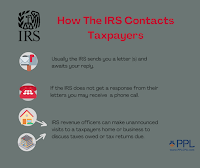According to Law360, a Holocaust survivor who refused to pay $8.8 million in tax penalties for failing to disclose two Swiss bank accounts has agreed to pay $6 million following settlement delays, ending the government's lawsuit against him, according to a New York federal court in U.S. v. Walter Schik, case number 1:20-cv-02211, in the U.S. District Court for the Southern District of New York.
Walter Schik, a retired tie salesman and business owner, agreed to the settlement almost a year after the government announced a deal, according to an order filed on August 23, 2023. The government sued Schik in 2020 for failing to pay $8.8 million in FBAR penalties for 2007. The $16 million in his unreported Swiss accounts, from which he made no withdrawals, had been inherited from relatives killed in Nazi Germany's concentration camps, Schik said.
Schik, who became a U.S. citizen in 1957 after escaping to New York City as a teenager, had argued that he shouldn't have to pay the penalties. He had little formal education, he said in filings, and his accountant never told him about the legal requirement to file a Report of Foreign Bank and Financial Accounts, or FBAR, with the Internal Revenue Service.
In His Accounts, He Said.
The government announced that it had reached a settlement with him in August 2022. But when negotiations dragged on, U.S. District Judge Mary Kay Vyskocil threatened to dismiss the suit for failure to prosecute, calling the government's failure to finalize the deal "unacceptable" in a July order threatening sanctions.
Judge Vyskocil had rejected the government's request to reduce the case to judgment, saying in March 2022 that it was for a jury to decide whether Schik "was willful rather than merely negligent," therefore triggering the steep penalties, when he didn't file the FBAR.
Schik opened one bank account in Switzerland in the 1960s to deposit money recovered from relatives who had died in the concentration camps, according to filings. His Swiss money manager continued to open and close accounts on his behalf, the filings said, with Schik only signing his name to forms he never himself filled out.
The manager's opening and closing of accounts resulted in the two bank accounts that were ultimately targeted by the IRS.
The Swiss money manager was indicted in 2010 on charges of conspiring with U.S. taxpayers and foreign financial institutions to enable his clients to hide Swiss bank accounts from the IRS. After finding out about the indictment, Schik filed a voluntary disclosure to the IRS, according to filings.
FBAR For 2007, Reporting The Holdings In The Account.
But The IRS Rejected That Form As Well, The Suit Said.
Schik told the court that his opening of the Swiss accounts, and even his initial hiding of their contents, was understandable and traceable to his suffering from a "Holocaust mentality," according to a September 2021 filing.
Schik believed he needed secret funds in case he ever needed to flee persecution again, they said.
Born in Austria, Schik was 13 when his family was sent to concentration camps, he told the court. He was sent to a camp near Budapest, Hungary, where he was released with the sons of a wealthy Jewish business owner who had made a deal with the Nazis, while Schik's parents and siblings died at Auschwitz, he said. He escaped the Nazis a second time, tearing the Star of David from his jacket to hide after being captured, and later immigrated to the U.S. at age 16 under the identity of another child, he said.
"This deeply traumatic experience has affected Mr. Schik's entire life and, as relevant in this case, he justifiably believed that it was important to always maintain some funds in Switzerland, a neutral country during World War II," he said in a 2021 memorandum seeking to block the government's motion to reduce the penalties to judgment.
"This is a far cry from the typical offshore banking case, where secret accounts are used to skim cash profits and avoid tax," the memo said.
Read more at: Tax Times blog

.jpg)









